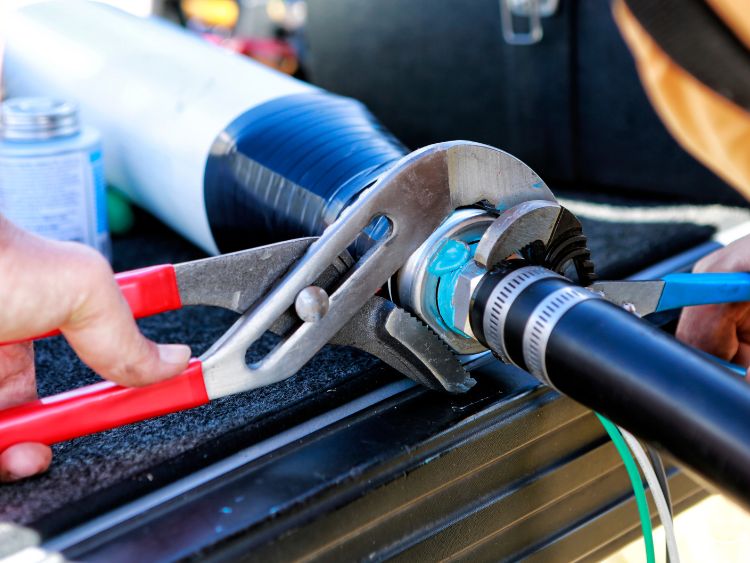If you’ve ever dreamt of becoming a licensed plumber in the Sunshine State, you’re in the right place! Securing a Florida plumbing license can open up a world of opportunities, but the process can be a bit complex. Don’t worry, though—we’ve got you covered with this comprehensive guide.
What is a Florida Plumbing License?
Before diving into the nitty-gritty details, let’s clarify what a Florida plumbing license is. Essentially, it’s a certification that authorizes you to legally perform plumbing work in Florida. Whether you want to fix leaky faucets, install water heaters, or tackle more significant plumbing projects, this license is your ticket to a legitimate plumbing career in Florida.
Why Get a Florida Plumbing License?
You might be wondering, “Why should I bother getting a Florida plumbing license?” Well, there are several compelling reasons:
- Legal Requirement: It’s illegal to perform most plumbing work without a license in Florida.
- Credibility: A license enhances your credibility and trustworthiness among clients.
- Job Opportunities: Licensed plumbers have access to better job opportunities and higher pay.
- Skill Validation: It validates your skills and knowledge, showing that you meet the industry standards.
Steps to Obtain a Florida Plumbing License
1. Meet the Basic Requirements
First things first, you need to ensure you meet the basic eligibility criteria. Here are the general requirements:
- Age: You must be at least 18 years old.
- Education: A high school diploma or equivalent is usually required.
- Experience: Typically, you need 4 years of practical experience working under a licensed plumber. This can vary based on the specific license type.
2. Choose the Right License Type
Florida offers several types of plumbing licenses. It’s crucial to select the one that aligns with your career goals. Here are the main types:
- Registered Plumbing Contractor: Allows you to work at the local level.
- Certified Plumbing Contractor: Permits you to work anywhere in Florida.
3. Complete the Application Process
Once you’ve decided on the license type, you’ll need to fill out an application. This process includes:
- Submitting Proof of Experience: Document your work history and experience.
- Background Check: Undergo a background check to ensure you have no disqualifying criminal history.
- Application Fee: Pay the required fee, which can vary depending on the license type.
4. Pass the Examination
Next up is the licensing exam. The exam tests your knowledge of plumbing practices, codes, and regulations. Here’s how to prepare:
- Study Guides: Utilize study guides and reference materials specific to Florida plumbing codes.
- Practice Tests: Take practice exams to familiarize yourself with the format and question types.
- Courses: Consider enrolling in a preparatory course for additional support.
5. Maintain Your License
After passing the exam and receiving your license, the journey doesn’t end there. You must maintain your license by:
- Renewing Periodically: Licenses typically need to be renewed every two years.
- Continuing Education: Complete continuing education requirements to stay updated on the latest plumbing codes and practices.
FAQs About Florida Plumbing License
What Are the Costs Involved in Getting a Florida Plumbing License?
The costs can vary, but you should budget for application fees, exam fees, and potential costs for study materials or preparatory courses. Generally, it can range from $300 to $500.
How Long Does It Take to Get a Florida Plumbing License?
The timeline can vary based on your experience and the time needed to prepare for and pass the exam. On average, it might take several months to a year from start to finish.
Can I Transfer My Plumbing License from Another State to Florida?
Yes, Florida offers reciprocity agreements with certain states. You may need to provide proof of licensure and meet specific state requirements.
What Happens If I Fail the Exam?
Don’t sweat it! You can retake the exam, but you might have to wait for a specified period and pay a retake fee. Use the time to study and better prepare for the next attempt.
Where Can I Find Study Resources for the Exam?
There are numerous resources available online, including the Florida Department of Business and Professional Regulation (DBPR) website, which offers study guides and practice questions.
Conclusion: Your Path to Plumbing Success
Embarking on the journey to obtain your Florida plumbing license may seem daunting, but with the right information and preparation, it’s entirely achievable. Remember, this license is not just a legal requirement; it’s a testament to your skills, dedication, and professionalism in the plumbing industry.
By following the steps outlined above, you’ll be well on your way to a rewarding career as a licensed plumber in Florida. So, what are you waiting for? Dive in, start preparing, and soon you’ll be fixing leaks and installing pipes like a pro.
Authoritative Links Related to Florida Plumbing License
- Florida Department of Business and Professional Regulation (DBPR): www.myfloridalicense.com
- National Association of Plumbing-Heating-Cooling Contractors (PHCC): www.phccweb.org
- American Society of Plumbing Engineers (ASPE): www.aspe.org
- International Association of Plumbing and Mechanical Officials (IAPMO): www.iapmo.org
These resources provide additional information and support for aspiring plumbers. Good luck on your journey to becoming a licensed plumber in Florida!



